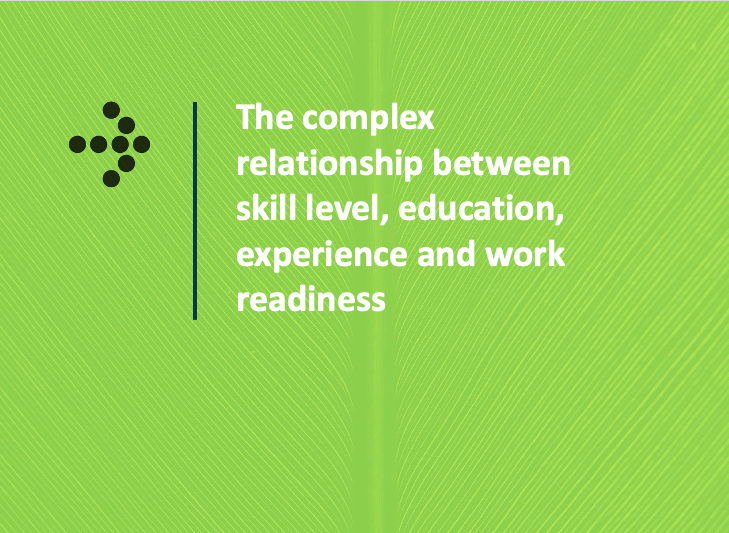The complex relationship between skill level, education, experience and work readiness

At Odyssey Talent Management we have always held the belief that education and experience impact on the overall work readiness and basic skill level of the working population.
We decided to test this thinking by analysing our database, which consists of over 94 000 candidates, eight countries and 54 companies.
We looked at all the candidates we have assessed, and compared their results on our Odyssey skills framework, based on candidate education level, and then by candidate job level.
The results that emerge are significant:
Job level
In terms of job level, there is a clear distinction between the performance of candidates on all of the skills assessed, as can be seen in the table below:

A range of conclusions can be drawn from this result, including:
- As candidates progress into more complex roles, their ability to problem solve, to learn new tasks, and to work with detail increases significantly
- The skills that are impacted the most by formal education (English literacy and numeracy) have the largest differences between those working in semi-skilled roles, and those working in more complex roles
- Clearly, the ideal skills make-up changes and becomes stricter, the more complex the role becomes
Educational Level
In terms of level of education, the trend is even more accentuated, as per the table below:

One can clearly see the impact that formal and tertiary education has on the basic skill level and work readiness of the typical candidate. It is interesting that the biggest differences between those without a grade 12 and those with a degree occur in numeracy and English literacy. It is also worth noting that clerical accuracy seems to be a strong predicter of educational level.
However, a more useful interpretation of this research is that it allows us to predict the job level that a candidate should be comfortable handling, based on their Odyssey result.
For example, if a candidate’s Odyssey result falls at the 59th percentile, we will know that this candidate should be comfortable handling the complexity of roles that often require a degree, regardless of their educational level attained. Furthermore, if a candidate’s Odyssey result falls at the 46th percentile, we can confidently predict that their job complexity level will fall within those roles that typically require a grade 12 level of education, even if they have a degree.C
On further reflection, there is an additional argument that can be made to better understand what our data is telling us about the working population. From the data it is clear that a better skill level correlates with one’s ability to attain a higher level of education. Similarly, possessing better skills correlates with one’s chances of securing a more complex role in a company.
This means there is a need to intervene in the development of the actual skills of the country’s youth, in order to provide them with a better chance to complete higher levels of education and, in turn, better paying and more stable job opportunities.
Image: Nottingham Trent University